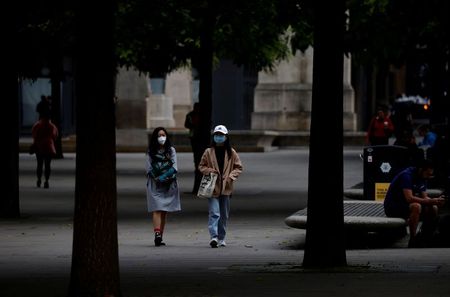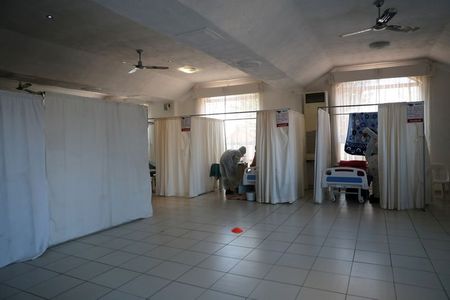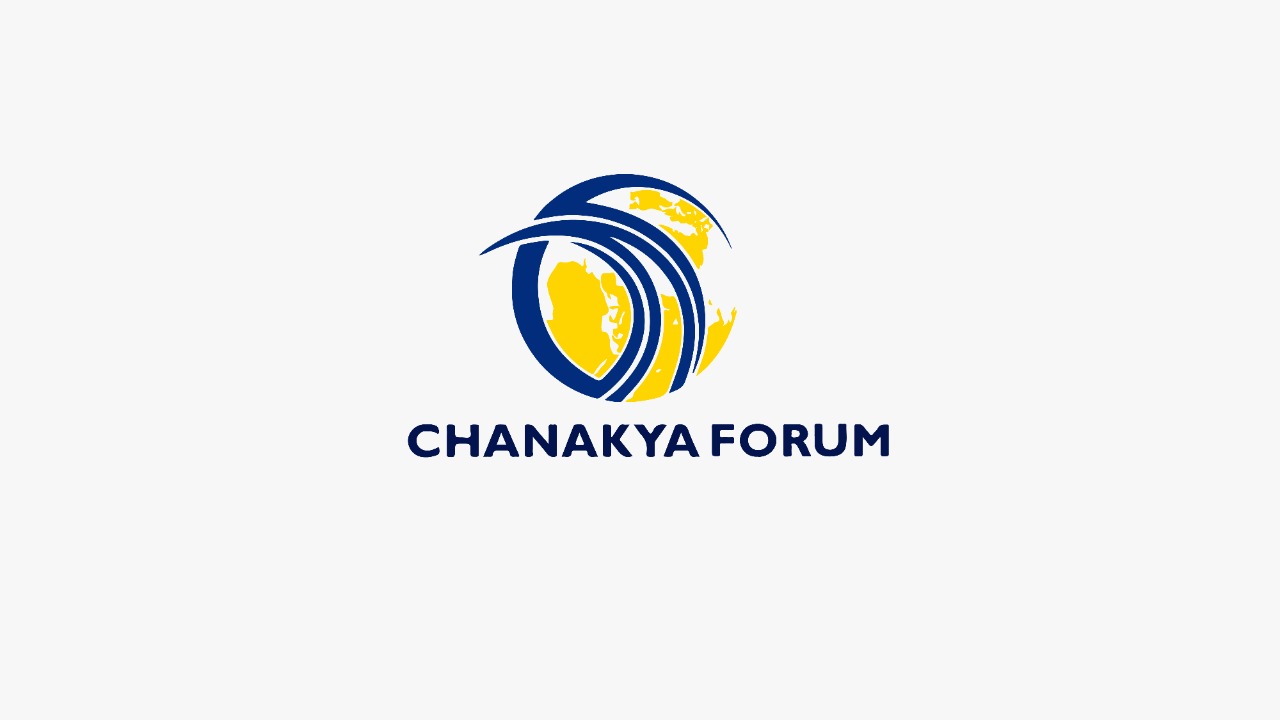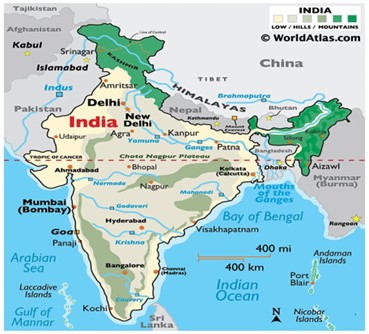
New COVID Variant Omicron Triggers Global Alarm

The discovery of a new coronavirus variant named Omicron triggered global alarm on Friday as countries rushed to suspend travel from southern Africa and stock markets on both sides of the Atlantic suffered their biggest falls in more than a year.
The World Health Organisation (WHO) on Nov 26 classified the B.1.1.529 variant detected in South Africa as a SARS-CoV-2 “variant of concern,” saying it may spread more quickly than other forms. Preliminary evidence suggested there is an increased risk of reinfection and there had been a “detrimental change in COVID-19 epidemiology,” it said in a statement after a closed meeting of independent experts who reviewed the data.
Infections in South Africa had risen steeply in recent weeks, coinciding with detection of the variant now designated as omicron, WHO said. “This variant has a large number of mutations, some of which are concerning. Preliminary evidence suggests an increased risk of reinfection with this variant, as compared to other (variants of concern), it said. Omicron is the fifth variant to carry such a designation. “This variant has been detected at faster rates than previous surges in infection, suggesting that this variant may have a growth advantage,” the WHO said. Current PCR tests continue to successfully detect the variant, it said.
Earlier, the WHO cautioned countries against hastily imposing travel restrictions linked to the variant of COVID-19, saying they should take a “risk-based and scientific approach”. Global authorities reacted with alarm to the new variant detected in South Africa, with the EU and Britain among those tightening border controls as scientists sought to find out if the mutation was vaccine-resistant. “At this point, implementing travel measures is being cautioned against,” WHO spokesman Christian Lindmeier told a U.N. briefing in Geneva. “The WHO recommends that countries continue to apply a risk-based and scientific approach when implementing travel measures.” It would take several weeks to determine the variant’s transmissibility and the effectiveness of vaccines and therapeutics against it, he said, noting that 100 sequences of the variant have been reported so far.
The World Health Organisation (WHO) said Omicron may spread more quickly than other forms, and preliminary evidence suggested there is an increased risk of reinfection. Epidemiologists warned travel curbs may be too late to stop Omicron from circulating globally. The new mutations were first discovered in South Africa and have since been detected in Belgium, Botswana, Israel and Hong Kong.

People pull shopping carts as they walk past an information board, amid the COVID-19 outbreak, in Bolton
The United States will restrict travel from South Africa and neighbouring countries effective Monday, a senior Biden administration official said. Going further, Canada said it was closing its borders to those countries, following bans on flights announced by Britain, the European Union and others. But it could take weeks for scientists to fully understand the variant’s mutations and whether existing vaccines and treatments are effective against it.
The variant has a spike protein that is dramatically different than the one in the original coronavirus that vaccines are based on, the UK Health Security Agency said, raising fears about how current vaccines will fare. Scientists issued similar warnings. “This new variant of the COVID-19 virus is very worrying. It is the most heavily mutated version of the virus we have seen to date,” said Lawrence Young, a virologist at Britain’s University of Warwick.
“Some of the mutations that are similar to changes we’ve seen in other variants of concern are associated with enhanced transmissibility and with partial resistance to immunity induced by vaccination or natural infection.” Those worries pummelled financial markets, especially stocks of airlines and others in the travel sector, and oil, which tumbled by about $10 a barrel.
The Dow Jones Industrial Average closed down 2.5%, its worst day since late October 2020, and European stocks had their worst day in 17 months. Cruise operators Carnival Corp, Royal Caribbean Cruises and Norwegian Cruise Line plunged more than 10% each, while shares in United Airlines, Delta Air Lines and American Airlines slumped almost as much.
Most Significant Variant
Several other countries including India, Japan, Israel, Turkey, Switzerland and the United Arab Emirates also toughened travel curbs. In Geneva the WHO – whose experts on Friday discussed the risks presented by the variant, called B.1.1.529 – had earlier warned against travel curbs for now. “It’s really important that there are no knee-jerk responses,” said the WHO’s emergencies director Mike Ryan, praising South Africa’s public health institutions for picking up the new variant of the coronavirus that causes COVID-19.
Richard Lessells, a South Africa-based infectious disease expert, also expressed frustration at travel bans, saying the focus should be on getting more people vaccinated in places that have struggled to access sufficient shots. “This is why we talked about the risk of vaccine apartheid. This virus can evolve in the absence of adequate levels of vaccination,” he told Reuters. Less than 7% of people in low-income countries have received their first COVID-19 shot, according to medical and human rights groups. Meanwhile, many developed nations are giving third-dose boosters.
“Failure to help vaccinate sub-Saharan Africa – still barely 4% of the population – left us all exposed to risk of a new, more virulent #COVID variant,” IMF Managing Director Kristalina Georgieva wrote on Twitter. “News of #Omricon is an urgent reminder of why we need to do even more to vaccinate the world.”

Too Late for Travel Curbs?
The coronavirus has swept the world in the two years since it was first identified in central China, infecting 260 million people and killing 5.4 million. One epidemiologist in Hong Kong said it may be too late to tighten travel curbs against the latest variant. “Most likely this virus is already in other places. And so if we shut the door now, it’s going to be probably too late,” said Ben Cowling of the University of Hong Kong. Discovery of the new variant comes as Europe and the United States enter winter, with more people gathering indoors in the run-up to Christmas, providing a breeding ground for infection.
The World Trade Organization (WTO) became the first major diplomatic casualty of the new coronavirus variant on Friday when it postponed its first ministerial meeting in four years due to the deteriorating health situation. Ministers from WTO members were due to have gathered next week for a meeting widely seen as a test of the WTO’s relevance. The WTO said that its members had agreed late on Friday to postpone the ministerial conference after the new variant outbreak led to travel restrictions that would have prevented many ministers from reaching Geneva.
Belgium detected Europe’s first confirmed case of the new variant of COVID-19 on 26 Nov, and at the same time announced measures aimed at curbing a rapidly spreading fourth wave of coronavirus infections. Many more countries are considering travel restrictions, lockdown and quarantine period as fourth wave is causing alarm across many countries of Europe. The new variant could make the situation worse id it is allowed to spread further.
********************************************************************************************************************
By David Shepardson and Stephanie Nebehay for Reuters (edited by Chanakya Forum)
Disclaimer
The opinions expressed in this article are the author’s own and do not reflect the views of Chanakya Forum. All information provided in this article including timeliness, completeness, accuracy, suitability or validity of information referenced therein, is the sole responsibility of the author. www.chanakyaforum.com does not assume any responsibility for the same.
Chanakya Forum is now on . Click here to join our channel (@ChanakyaForum) and stay updated with the latest headlines and articles.
Important
We work round the clock to bring you the finest articles and updates from around the world. There is a team that works tirelessly to ensure that you have a seamless reading experience. But all this costs money. Please support us so that we keep doing what we do best. Happy Reading
Support Us





















POST COMMENTS (0)